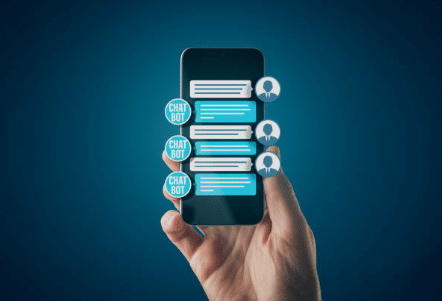
Gagnez en efficacité en apportant les bonnes réponses, sans mobiliser vos experts
3 h/jour
perdues en recherche d’information
8
recherches sans résultat
90%
de réponses existantes
Centraliser la connaissance de vos experts, pour capitaliser les savoirs de votre entreprise, et les rendre disponibles pour tous les usages :
Trouver instantanément la bonne information depuis les outils de travail du quotidien (CRM, ticketing, Intranet, …) pour faire gagner 20% de temps de recherche aux utilisateurs :
Mettre fin à l’attente d’une réponse aux demandes récurrentes. Les connaissances sont disponibles instantanément sur tous les canaux de contacts et permettent une réduction de 30% des sollicitations :
Assurer un service clients disponible 24 heures sur 24 et 7 jours sur 7 pour offrir un support continu :
Piloter finement la qualité et la performance de la gestion des connaissances, des mises à jour et des réponses aux recherches avec des tableaux de bord dynamiques issus de l’historique :

Assurez à vos clients et partenaires un support immédiat et personnalisé
Automatiser le traitement des demandes simples et récurrentes du SAV, en 24/7 et en multilingue, pour vos clients et revendeurs à l’international.

Qualifiez 100% des demandes du helpdesk et proposez soit un self-service soit une escalade vers le support IT ou métier pertinent
Accélérer le premier niveau de demandes par un traitement 100% automatisé, disponible en 24/7 et capable de répondre à toutes les questions courantes. Le chatbot décharge les collaborateurs des tâches les plus répétitives, pour les laisser se concentrer sur celles à forte valeur ajoutée.

Répondez immédiatement aux collaborateurs via un chatbot RH et déchargez vos équipes Ressources Humaines
Faciliter les parcours d’onboarding et les montées en compétences, ré-engager vos collaborateurs en les rendant autonomes sur leurs questions administratives.

Alex Candelier, Directeur des projets de digitalisation du support au sein de la DSI

Thibault Martin, Directeur Service Clients

Marc AUBRY, Directeur de l’Accompagnement au Changement, BPCE Solutions Informatiques

Sandrine Verrechia, Directrice Relation Clients Rings international
Le 13/06/2022
Intégrer un outil de chatbot pour sa PME/ETI est simple et permet d'obtenir rapidement des bénéfices opérationnels. Décryptage dans ce libre blanc.
DécouvrirLe 01/03/2022
Découvrez les 3 best practices pour accompagnez efficacement vos équipes dans la mise en place et de déploiement du chatbot.
DécouvrirLe 02/03/2022
Les chatbots sont partout. Ils automatisent le support client, prodiguent conseils et informations à vos collaborateurs.
Découvrir
Visiativ Gestion des Connaissances est une offre de Visiativ Innovation Engine.
Notre plateforme d’innovation cloud offre une continuité de services pour les transformations digitales, sociales et environnementales des PME et ETI : des services et des solutions pour planifier, mettre en œuvre et piloter vos transformations, au service de votre compétitivité et de la performance de votre entreprise.
Mémorisez et partagez enfin la connaissances de vos experts et gagnez 50 jours de productivité par an.
DécouvrirFournir une assistance en 24/7 à ses clients et collaborateurs
Découvrir